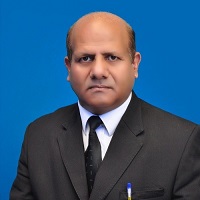
Disappearance of middle class in any society is beginning of class war, class conflict or class struggle creating frustration, unrest and disappointment ultimately resulting into a revolutionary situation. Revolutions, amongst intellectual and ordinary people, are always misconceived as violent changes causing massive destructions with change of political power whereas, in reality, revolution is any major change which changes social and economic structure of any society i.e. haves become have nots, politically powerful to becomes powerless or there is major shifting in different social and economic classes. It may be easily said that middle class is a socially buffer between the wealthy or elite and poor classes.
It is not only absorbing shocks of class conflict but also allows class migration or shifting from downward to upward and from upward to downward. Ordinarily, there are three economic classes in any economic social order, firstly, Upper Class (UC), Middle Class (MC) and Lower Class (LC). In between the upper and lower classes, there are also upper middle and lower middle class variants which also connects middle class with upper class and lower class. Therefore, there are three classes and more elaborately five classes although so far economists cannot determine exact limits for beginning and ending upper and lower middle classes. In literary or in ordinary words, there are rich, white-collared and poor classes.
During the last more than one and half year and particularly after the Pakistan Democratic Movement (PDM) there was speedy drifting amongst the economic classes in Pakistani society. However, that drifting is one-sided i.e. downward. The upper middle, middle and lower middle classes have fast drifted down towards lower class. At the same time, the lower class is unable to bear economic crunch due to rising tariffs of utilities and increasing prices of essential commodities or household items or due to unemployment. Due to rising tariffs, competitiveness of export-oriented industrial products has ended. Industrial sector is closing down and industrial workers are being unemployed without any future prospects of employment.
However, none amongst ruling elite as well as policy-makers are willing to take this newly emerging phenomenon. The most dangerous aspect is disappearance of middle class which was otherwise a buffer between the rich and poor. Now rich and poor i.e. haves and have nots are directly confronting to each other. Historically, face to face situation between the rich and poor classes is not only alarming but also disastrous. Such situation was faced by the British economy and society after the Industrial Revolution but then British leadership was able to make social and economic corrections by introducing economic incentives and social security schemes averting alarming and revolutionary situation during the late nineteenth and early twentieth centuries although continuous wars kept the people engaged in external issues. But there were similar economically disastrous situations in other parts of Europe.
France had become the first victim during the eighteenth century and suffered not only destruction of economy and industry but killing of thousands of people during the civil war and all that ultimately changed ruling structure of French government and society after successful French Revolution. Socialist and communist ideologies started flourishing from Germany but affected worst to Russian Czars as those were unable to realize changes in neighbouring countries of Europe. Then in 1905 there was first Russian Revolution which allowed rethinking to Russian Czars and ruling elite but they were not amenable to approaching revolutionary ideas and changes. However, it was the year 1917 when the Communist or Bolshevik Revolution successfully destroyed the Russian Czars’ monarchy and elite class.
In every abrupt or revolutionary change, concentrated mass population plays an important role. Pakistan is now a population of about 250 million people with huge concentrations in big cities like Karachi, Hyderabad, Lahore, Faisalabad, Gujranwala, Rawalpindi, Multan, Sialkot, Sargodha and Peshawar, etc. By becoming realistic it may be admitted that Pakistan’s security and law-enforcement agencies are not so sophisticated and equipped to check any violent and rebellious agitations if masses are really came out of their houses to protest faulty and frustrating economic policies of the ruling elite who is living a lavish and luxurious lives with their glimpses to poor and unemployed people of Pakistan through social media. Social media is an uncontrolled force and closing or breakdown of it is not to make the people self-controlled and self-directed but administrative system will also equally collapse.
Historically, if French ruling elite and Russian Czars could not stop masses to challenge their ruthless authority then it is very difficult to expect a long time commitments from public servants when they are also equal victims of economic destruction when there is no personal loyalty or official power so vested in any public officeholder in Pakistan. It is noteworthy that the constitutions bind and create order and peace amongst people when constitutional governance and order also guarantee protection of life and property to the citizens otherwise there is no loyalty to any constitution or obedience to any law. The state of fear is also making people to think how to tear or revenge ravaging state or atrocious forces. But it is unfortunate, Pakistani ruling elite as well as policy-makers are not willing to learn from past otherwise no nation can forget situation like crumbing security and administrative set up in the East Pakistan with all brutal force and power. Ordinary people are not willing to challenge the power of modern state but once there is a mob psychology then no force can control the masses.
There will be a great loss to Pakistan and its security infrastructure when economy of Pakistan is also shattered due to disappearing of middle class. History not only repeats itself but history also teaches lessons to those who are willing to learn. It may be realized that there might be the worst lesson of history if public trust and economic security is not ensured. Neither the exploiting economic elite nor bureaucratic elite will be able to survive if there will be any revolutionary situation. It may also be noted that situation in future is drifting speedily and none will be able to stop revolutionary economic and governance changes in Pakistan during the year 2024 as the ferociousness or forbearance of people of Pakistan will be at boiling point due to unbearable economic stress which had already broken the backbone of the poor the largest lower or poor class constituting more than 90% of people in Pakistan when the middle class had already melted away. Therefore, disappearance of middle class is an economic catastrophe and threat to national security of Pakistan.
—
The writer Dr G.M Chaudhry is also CEO and Senior Research Fellow at Centre for Research in Political Sciences and International Law Islamabad – can be reached at drgmchaudhryg@gmail.com – WhatsApp 03335152901


